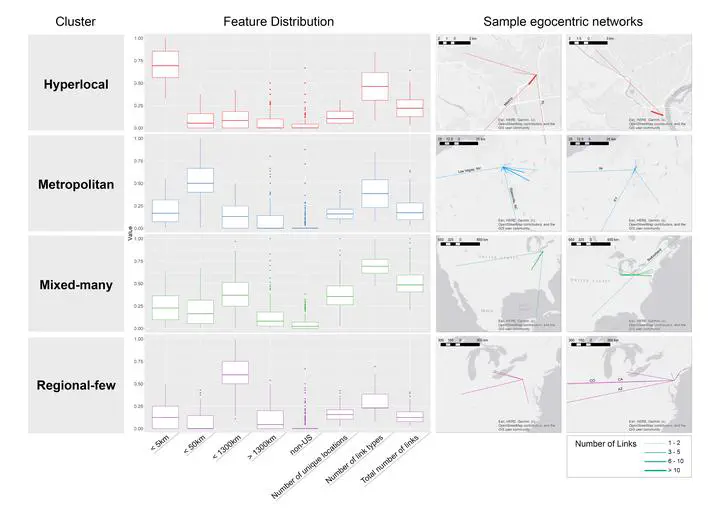Demographic Characteristics of Locals and Jetsetters: A Study of Extensibility Using the Neighborhood Connectivity Survey
 Connectivity Types
Connectivity Types(Submitted to Journal of Social Inclusion)
This work is in progress with Dr. Clio Andris, Seolha Lee, Hanzhou Chen, Benjamin de la Pena. This project was sponsored by The Knight Foundation.
Abstracts
Individuals connect to sets of places through travel, migration, social interactions, and telecommunications. This set of multiplex network connections comprises an individual’s extensibility, a human geography term representing geographic reach. Here, we attempt to uncover the demographic and behavioral factors that correlate with high or low extensibility. We used a dataset of 950 individuals’ self-reported surveys, and classify individuals into one of four different typologies: 1) hyperlocal, 2) majority local, 3) glocal, or 4) regional global patterns. We visualized individuals by their connection distances, strengths, types, and the diversity of connection destinations. We also tested whether these typologies correlate with local social support, ability to leverage social networks for disaster evacuation, frequency to travel or migrate between cities, and sociodemographic characteristics.
We found that respondents who are white, married, and have higher educational attainment were significantly associated with the glocal pattern, while those who reported as Black/African American, single, and having high school (or less) educational attainment tend to have more local social and spatial ties. We also found that glocal individuals are more likely to travel or resettle across cities, enjoy higher local social support, and have more evacuation options via social networks than individuals with mostly local ties. Our findings can help policymakers understand how individuals may be likely to exhibit different types of extensibilities, and how these factors can be used as ‘rules of thumb’ for estimating who may have distant or nearby connections.